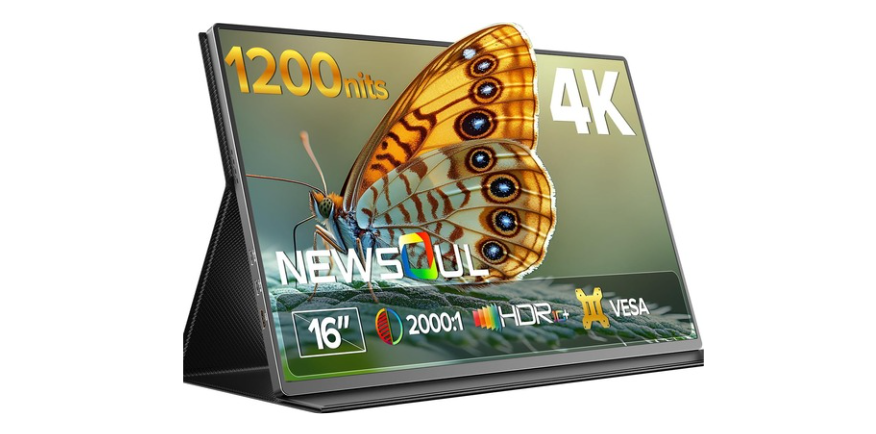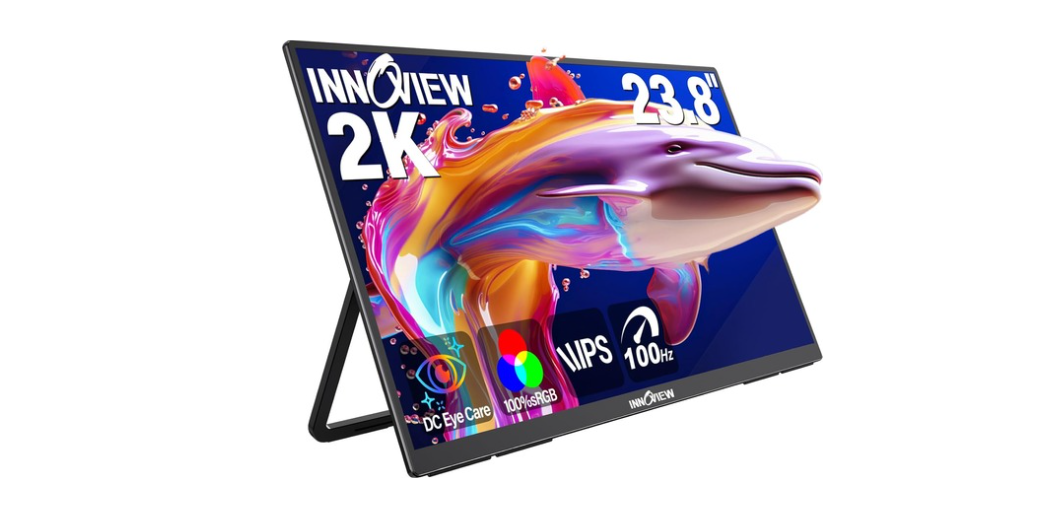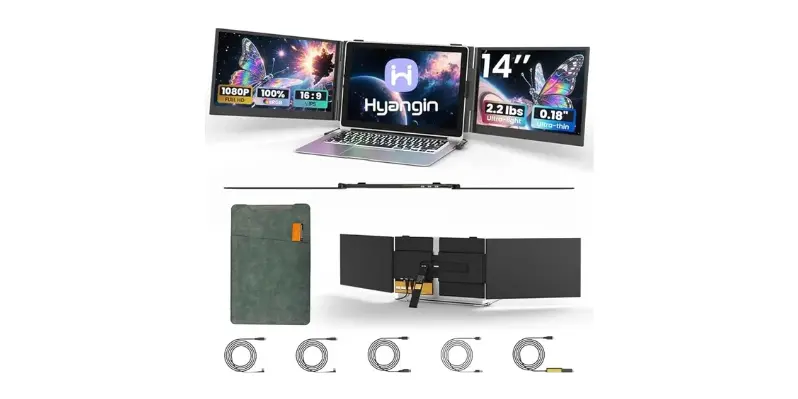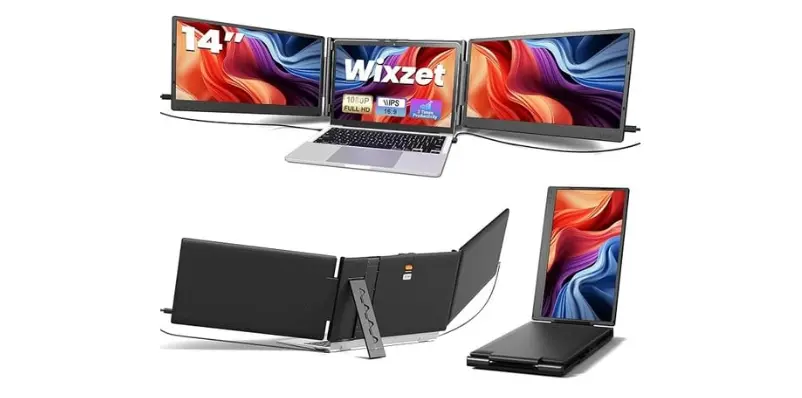Have you ever wondered what external monitor would be the best match for your laptop? It’s easy to get lost in the sea of endless options available out there. Whether you’re looking to enhance productivity, improve your gaming experience, or simply get some more screen real estate, choosing the right external monitor can be an absolute game-changer.
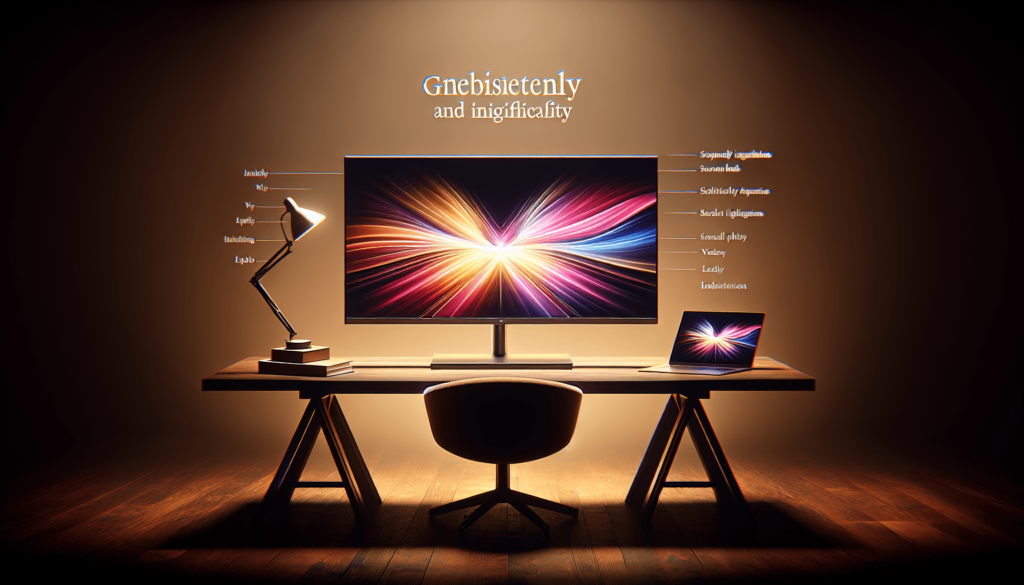
Understanding Your Needs
Before you get tangled in specs and brands, it’s crucial to understand what exactly you need from an external monitor. Are you a graphic designer needing impeccable color accuracy? Or perhaps a gamer looking for high refresh rates? Let’s break it down.
Types of Users
- Casual Users: Need extra screen space for browsing, multimedia, and everyday tasks.
- Professionals: Require accurate color and resolution for tasks like photo editing or coding.
- Gamers: Seek high refresh rates and low response times.
- Entertainers: Want wide screens and high resolutions for the ultimate movie experience.
Key Features to Consider
Alright, so you know what type of user you are. Now, let’s talk features!
Resolution
Resolution determines how much detail a screen can display. Common resolutions include:
- 1080p (Full HD): Adequate for casual use.
- 1440p (Quad HD): Great for professionals needing more detail.
- 2160p (4K Ultra HD): Top-of-the-line, best for detailed work and high-quality entertainment.
Refresh Rate
Measured in Hertz (Hz), the refresh rate dictates how many times the monitor refreshes the image per second.
- 60Hz: Standard for casual use.
- 144Hz: Ideal for gaming.
- 240Hz: For competitive gamers needing ultra-smooth visuals.
Response Time
Response time is the speed at which a pixel changes color, crucial for gaming and fast-paced visuals.
- 1ms to 5ms: Ideal for gamers.
- 10ms or higher: Fine for casual users and professionals.
Connectivity Options
You don’t want to end up with a monitor that doesn’t connect to your laptop properly, do you?
- HDMI: Standard for most modern monitors.
- DisplayPort: Great for high-resolution and high-refresh-rate setups.
- USB-C: Ideal for the latest laptops, providing power and display via a single cable.
- VGA: Older technology, rarely used in modern monitors.
The Best External Monitors for Casual Users
Let’s assume you need a monitor for basic day-to-day tasks like web browsing, word processing, and watching videos. You don’t need over-the-top specifications, but a decent all-rounder will do.
ASUS VN279QL
Specifications:
| Feature | Specification |
|---|---|
| Resolution | 1080p (Full HD) |
| Refresh Rate | 60Hz |
| Response Time | 5ms |
| Connectivity | HDMI, DisplayPort, VGA |
| Screen Size | 27 inches |
Why you’ll love it: It’s a budget-friendly option with versatile connectivity options and a decent size. Perfect for casual use!
Dell P2419H
Specifications:
| Feature | Specification |
|---|---|
| Resolution | 1080p (Full HD) |
| Refresh Rate | 60Hz |
| Response Time | 8ms |
| Connectivity | HDMI, DisplayPort, VGA |
| Screen Size | 24 inches |
Why you’ll love it: This monitor offers flexible connectivity and a solid all-around performance in a compact size. Perfect if you’re tight on desk space.
Top Picks for Professional Use
If you work with designs, videos, or any tasks requiring perfect color accuracy and sharp details, you’ll need more sophisticated specs.
LG 27UK650-W
Specifications:
| Feature | Specification |
|---|---|
| Resolution | 2160p (4K Ultra HD) |
| Refresh Rate | 60Hz |
| Response Time | 5ms |
| Connectivity | HDMI, DisplayPort |
| Screen Size | 27 inches |
Why you’ll love it: The IPS panel ensures top-notch color accuracy and the 4K resolution is a dream for any professional.
BenQ PD3200U
Specifications:
| Feature | Specification |
|---|---|
| Resolution | 2160p (4K Ultra HD) |
| Refresh Rate | 60Hz |
| Response Time | 4ms |
| Connectivity | HDMI, DisplayPort, USB-C |
| Screen Size | 32 inches |
Why you’ll love it: This monitor offers top-of-the-line display quality and ample connectivity options. The larger screen is fantastic for multitasking.
Best Monitors for Gaming
For gamers, performance is everything. You need a monitor with a high refresh rate and low response time to get that edge in fast-paced games.
ASUS ROG Swift PG279QZ
Specifications:
| Feature | Specification |
|---|---|
| Resolution | 1440p (Quad HD) |
| Refresh Rate | 165Hz |
| Response Time | 1ms |
| Connectivity | HDMI, DisplayPort, USB |
| Screen Size | 27 inches |
Why you’ll love it: With a blazing fast refresh rate and response time, this monitor is designed to give you the smoothest gaming experience imaginable.
Acer Predator X27
Specifications:
| Feature | Specification |
|---|---|
| Resolution | 2160p (4K Ultra HD) |
| Refresh Rate | 144Hz |
| Response Time | 4ms |
| Connectivity | HDMI, DisplayPort, USB |
| Screen Size | 27 inches |
Why you’ll love it: This monitor combines 4K resolution with a high refresh rate, making it ideal for gamers who want the best of both worlds.
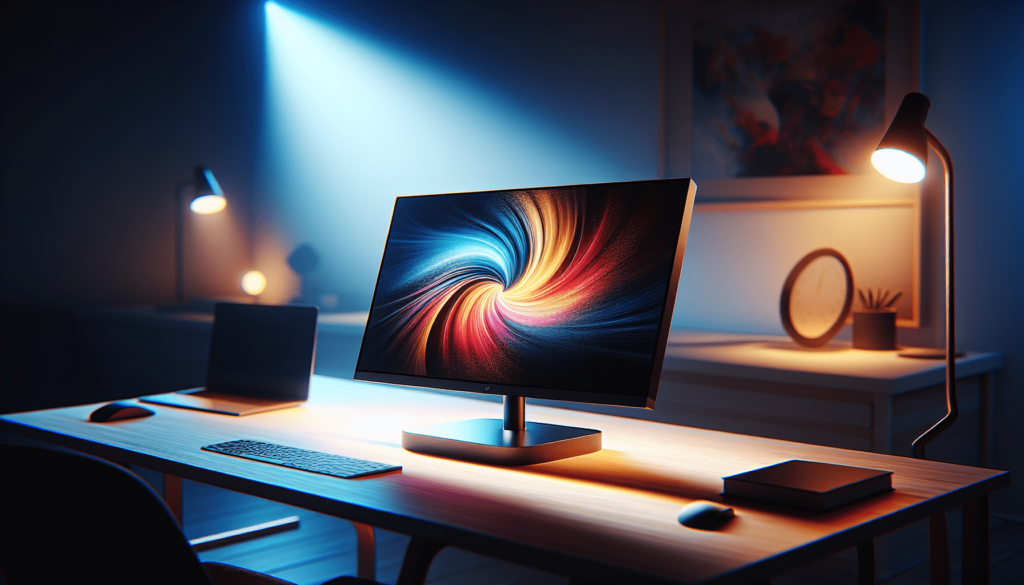
Ultimate Monitors for Entertainment
When you’re kicking back to watch your favorite movies or binge a TV series, nothing beats an expansive high-resolution screen.
Samsung CJ791
Specifications:
| Feature | Specification |
|---|---|
| Resolution | 1440p (Quad HD) |
| Refresh Rate | 100Hz |
| Response Time | 4ms |
| Connectivity | HDMI, DisplayPort, USB-C |
| Screen Size | 34 inches (Curved) |
Why you’ll love it: The ultra-wide, curved display immerses you in your entertainment, and the high resolution ensures crystal-clear detail.
LG OLED48CXPUB
Specifications:
| Feature | Specification |
|---|---|
| Resolution | 2160p (4K Ultra HD) |
| Refresh Rate | 120Hz |
| Response Time | ~1ms |
| Connectivity | HDMI, DisplayPort, USB-C |
| Screen Size | 48 inches |
You’ll love it: OLED technology provides unrivaled contrast and vibrant colors, making it the Rolls Royce of entertainment monitors.
Connectivity: Do You Have the Right Ports?
It’s easy to overlook the necessity of having the right ports on your laptop. Here’s a quick overview of the most common ports and what they’re best for:
HDMI
- It is most common and versatile.
- Supports audio and video.
- Best for Full HD and some 4K monitors.
DisplayPort
- Known for high-definition video and audio.
- Ideal for high-refresh-rate and high-resolution monitors.
- Often used in gaming setups.
USB-C
- Modern and multi-functional.
- Supports power delivery, video, and data transfer.
- Great for the newest laptops and monitors.
VGA
- Older technology is limited to analog signals.
- Not recommended for high-definition monitors.
Budget vs. Premium: What Can You Afford?
Not everyone has deep pockets, but the good news is there are solid options across different price ranges. Here’s a simple comparison:
Budget Monitors
| Model | Approx. Price | Key Features |
|---|---|---|
| ASUS VN279QL | Under $200 | 1080p resolution, versatile ports |
| Dell P2419H | Under $200 | Solid performance, compact size |
Midrange Monitors
| Model | Approx. Price | Key Features |
|---|---|---|
| LG 27UK650-W | $400-$600 | 4K resolution, IPS panel |
| ASUS ROG Swift PG279QZ | $600-$800 | High refresh rate for gaming |
Premium Monitors
| Model | Approx. Price | Key Features |
|---|---|---|
| BenQ PD3200U | Over $800 | 4K resolution, color-accurate display |
| Acer Predator X27 | Over $1000 | 4K resolution, high refresh rate, HDR support |
Dual Monitor Setups: Is It Worth It?
Is one monitor ever truly enough? Dual monitor setups can radically increase your productivity, but there are some points to consider.
Benefits
- Improved Multitasking: Keep your email open on one screen and work on the other.
- Enhanced Productivity: More space to spread out your tasks.
- Versatility: Use one monitor for work and another for video conferences or entertainment.
Drawbacks
- Space: Dual monitors require more desk real estate.
- Cost: Two monitors will naturally cost more than one.
- Setup: Requires more cables and potentially a more powerful laptop to handle the extra load.
Final Thoughts: Deciding on the Best External Monitor
Choosing the right external monitor for your laptop hinges on understanding your needs and balancing them with your budget. Here’s a quick recap:
- Figure out what type of user you are: Casual, Professional, Gamer, or Entertainer.
- Consider resolution, refresh rate, and response time: Different tasks require different specs.
- Check connectivity options: Ensure your laptop has the correct ports to connect to the monitor.
- Balance budget against performance: Opt for the best specs you can afford, but don’t break the bank.
- Consider space and setup, Especially if you’re considering a dual-monitor setup.
No matter what you decide, the right external monitor can make a world of difference, transforming the way you work, play, and watch your favorite content. Here’s to finding the perfect match for your laptop!
